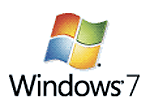 Fun shouldn’t have to be the be-all end-all of video games, so I approached Six Days in Fallujah, a game based on a bloody battle in Iraq, with cautious optimism. Maybe this would be the title that takes war for what it is — intense and violent, with deeper consequences than “win or lose” — rather than a shooting gallery in realistic skin.
Fun shouldn’t have to be the be-all end-all of video games, so I approached Six Days in Fallujah, a game based on a bloody battle in Iraq, with cautious optimism. Maybe this would be the title that takes war for what it is — intense and violent, with deeper consequences than “win or lose” — rather than a shooting gallery in realistic skin.
I tweeted as much when the game’s developers at Atomic Games talked about how they would address that issue. A report that the game included the perspective of insurgents piqued my interest even further. Maybe this game would not simply be Call of Duty: Modern Warfare with specific historical details.
It could be all for naught now that Konami has abandoned Six Days in Fallujah. A representative for the company told Asahi Shimbun that the decision came after “seeing the reaction to the videogame in the United States and hearing opinions sent through phone calls and e-mail.”
This doesn’t necessarily rule out the game. Another publisher could pick it up, but will any company want to? The outcry must have been pretty bad for Konami to back down from the controversy, because usually a strong negative response from concerned groups translates into free marketing. I guess it’s easier to justify the fictionalized, cartoonish violence of Grand Theft Auto than the portrayal of an ongoing war.
The other possibility is that Six Days in Fallujah isn’t as deep and meaningful as I had hoped, and Konami knows it. Even so, I’d still like to see this game come to market. The games industry might have learned a valuable lesson on what’s appropriate subject matter for video games and how to approach it. Instead, the stigma remains that games can’t take on a serious topic with anything but pure entertainment in mind.

 When IBM’s Deep Blue computer
When IBM’s Deep Blue computer  Lotsa Android-related news today:
Lotsa Android-related news today: How can you ensure that Windows 7 will run Windows XP applications? Make it run Windows XP. That’s the idea behind Windows XP Mode, a free download that Microsoft will make available to buyers of Windows 7 Professional, Enterprise, and Ultimate. (
How can you ensure that Windows 7 will run Windows XP applications? Make it run Windows XP. That’s the idea behind Windows XP Mode, a free download that Microsoft will make available to buyers of Windows 7 Professional, Enterprise, and Ultimate. ( RealDVD, the DVD-copying application from Real which I
RealDVD, the DVD-copying application from Real which I  Things don’t look good for OQO, the company behind a series of handheld computers that ran full-blown Windows. As
Things don’t look good for OQO, the company behind a series of handheld computers that ran full-blown Windows. As  Apple certainly made it through this past quarter in great shape. Nobody is complaining about the company’s results, which by all accounts were stellar. However, Cupertino does have a retail arm, and like any other it’s beginning to struggle.
Apple certainly made it through this past quarter in great shape. Nobody is complaining about the company’s results, which by all accounts were stellar. However, Cupertino does have a retail arm, and like any other it’s beginning to struggle. Video games tend to be frowned upon as second-class media, but the US Postal Service is taking that stance literally, according to a complaint by Gamefly, which rents video games through the mail.
Video games tend to be frowned upon as second-class media, but the US Postal Service is taking that stance literally, according to a complaint by Gamefly, which rents video games through the mail.